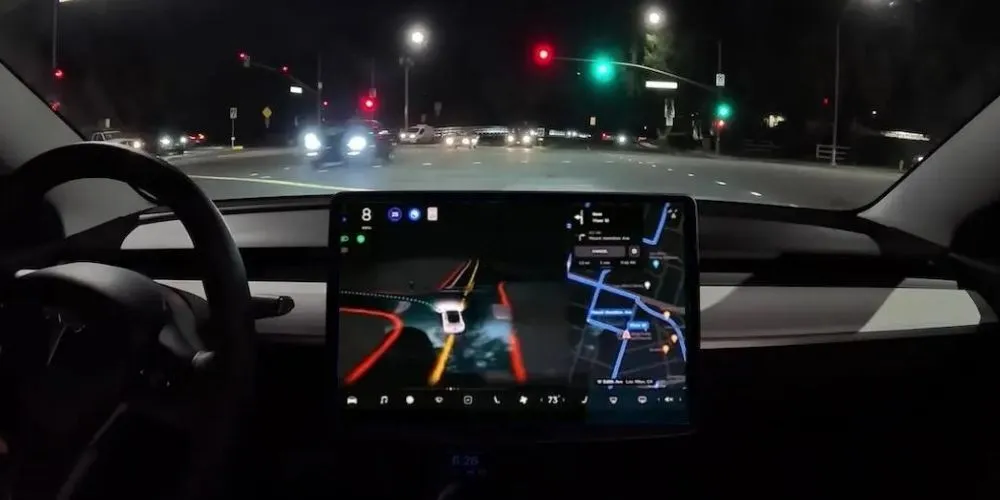Key Points
- Tesla is exploring using a data center in China for self-driving system development, considering both data transfer and local data processing.
- Musk’s recent Beijing visit aimed to smooth data transfer permissions and discuss a local data center. Tesla is in talks with Nvidia for hardware.
- The strategy shift reflects China’s importance in scaling Tesla’s autonomous driving technology with China’s stringent data privacy laws.
- Tesla’s FSD is not yet available in China, but local market entry could boost revenues. Current driver-assistance systems in China are level two.
Tesla (TSLA.O) is advancing its strategy to harness data from China to develop its self-driving system, marking a significant shift under CEO Elon Musk. According to insiders, Tesla is considering establishing a data center in China to train the algorithms necessary for fully autonomous vehicles.
Previously, Tesla focused on securing regulatory approval to transfer data generated by its electric vehicles (EVs) in China to the U.S. for its Full Self-Driving (FSD) system. The new strategy includes discussions with Nvidia (NVDA.O) about acquiring graphics processing units for the potential data center. However, U.S. sanctions prohibit Nvidia from selling its most advanced chips to China, complicating hardware procurement.
Tesla’s intensified efforts coincide with Musk’s recent visit to Beijing, where he met with Premier Li Qiang and other officials. During these meetings, Musk sought to ease permissions for data transfer and discussed the possibility of a local data center. He also explored licensing Tesla’s FSD system to Chinese EV manufacturers.
China, the largest car market globally, offers a vast amount of valuable data from its fleet of sensor-equipped vehicles navigating complex urban environments. Since 2021, Tesla has stored data from its Chinese EVs in Shanghai while seeking approval to transfer this data out of the country. A recent pilot project in Shanghai’s Lingang Area allows certain data transfers without further security assessments.
Musk’s strategy suggests that China is crucial for scaling autonomous driving, similar to how the Shanghai Gigafactory accelerated Tesla’s EV production. If successful, rolling out FSD in China and using local data for algorithm training could be a milestone for Tesla.
Despite Musk’s earlier preference for U.S.-based data processing, the new approach aligns with China’s stringent data privacy laws, which have posed challenges for foreign companies since 2021. Violations of these laws carry significant penalties.
Tesla has not yet been able to offer the full version of FSD, priced at nearly $9,000, in China. Gaining a foothold in the Chinese FSD market could boost Tesla’s revenue and profits, which are under pressure from local competitors like BYD (002594.SZ). Other automakers, including Hyundai, Mazda, Toyota, Volkswagen, and Nissan, have received approvals to transfer some data out of China, but not for AI training.
Industry experts believe it will take years for fully autonomous vehicles to become mainstream. Currently, driver-assistance features in China are at level two, requiring driver supervision. Tesla’s FSD and Autopilot system fall into this category, whereas competitors like Baidu and Pony.ai operate more advanced but limited test fleets.
In a recent investor call, Musk emphasized Tesla’s identity as an AI company, expressing confidence in FSD’s adaptability across markets with country-specific training.





